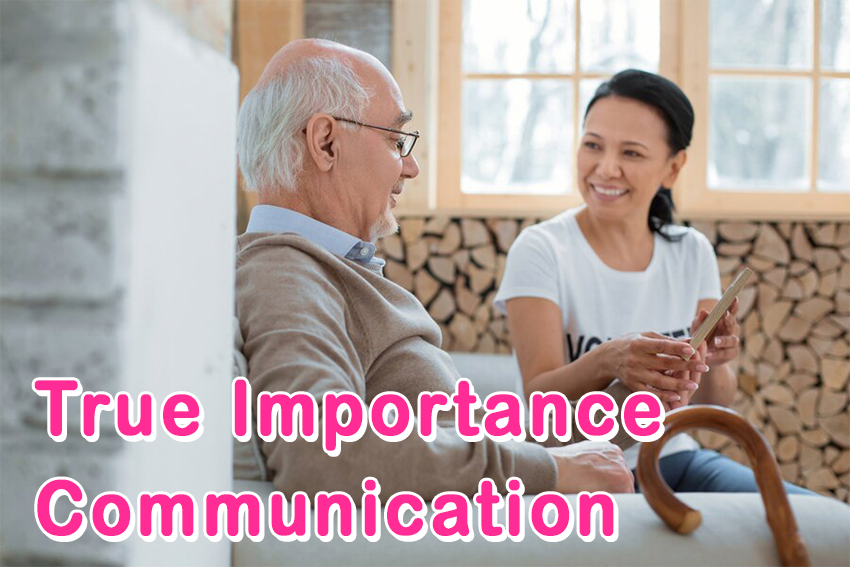In those quiet corridors of senior homes, where life brings the golden years, listen to the heartbeat of trust. Another day of the month when a compassionate caregiver walks into the house with medical care and warm communication. A beautiful and satisfying picture, right? The foundation of in-home care, especially with elderly and specially-abled patients, is building trust via meaningful communication.
Why is Communication In In-Home Care Important?
Communication is the foundation of every relationship, including Caregivers and receivers. Effective communication is more than simply a technique in the world of in-home care. For individuals where every action matters and every word has meaning, building the dots of compassion and trust is important.
At NurturedHomeCare.com, we take pride in going beyond accepted conventions because we know that real communication. Sometimes, your words can speed the healing process when even medical treatment fails.
So, What Makes Communication Effective?
In the complex world of in-home care, effective communication is the foundation of trust. NurturedHomeCare.com recognizes that the basics of communication are more than just words. Instead, they are those threads that connect caregivers and the people they look after. Here are the little things that make communication flowing and builds trust.
Empathy in-home care:
Empathy is the cornerstone of our caregiving philosophy. Beyond just a slogan, empathy in in-home care is a sincere appreciation of the unique emotions and experiences of the patients as well as their families.
Compassionate Communication:
Our caregivers conduct kind conversations, going above and beyond the clinical components. We build relationships that go beyond the surface by recognizing emotions, validating worries, and lending a sympathetic ear. This results in more personalized and compassionate care for patients.
Open Communication of Information:
When it comes to in-home care, in particular, open communication is extremely important. The idea of ‘Transparent Information Sharing’ is how our professionals at NurturedHomeCare.com promote candid communication.
The Value of an Honest and Open Discussion:
Life is full of challenges, especially when you are at the receiving end of in-home care. However, a day of open and honest discussions is always there to help. When caregivers encourage patients to voice their concerns or issues without hesitation, it opens several doors. Building an environment where trust is developed over time and patients feel heard, understood, and valued is important.
Non-verbal Cues for Communication:
The language of care isn’t just spoken but is communicated in the form of presence, touch, and expression. Especially when caring for special patients, the non-verbal communication cues make deeper connections and life easier for patients.
Recognizing Unspoken Signs:
The role of the caregiver isn’t just to talk and listen. But also to understand what’s unsaid. That reassuring touch or consoling gesture can do wonders in the journey of care for patients. These subtle indicators build a deeper understanding and improve the care standard.
Delicate Communication In Home Care
A delicate touch is needed when handling personal preferences or complicated health issues. Our caregivers respectfully respect the patient’s individuality. We carefully listen to concerns and approach challenging talks with empathy.
NurturedHomeCare.com operates to create a climate of trust and understanding with care receivers. We are committed to offering in-home care support to those already dealing with age and health. After all, your words can serve as bridges, connecting the hearts in the world of healthcare.
If you want more than just help with tasks, explore the difference NurturedHomeCare.com can make. We can help your loved one find joy and wellness while staying independent at home. moreover please follow our community on LinkedIn .






